These photos of adult Magicicada cicadas were taken in Westfield, NJ by Jim Occi on May 16th.
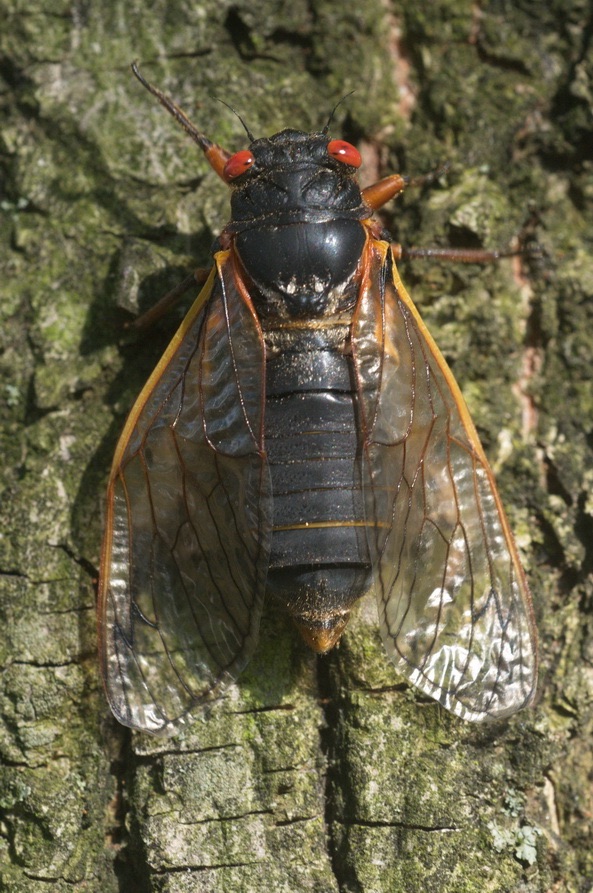
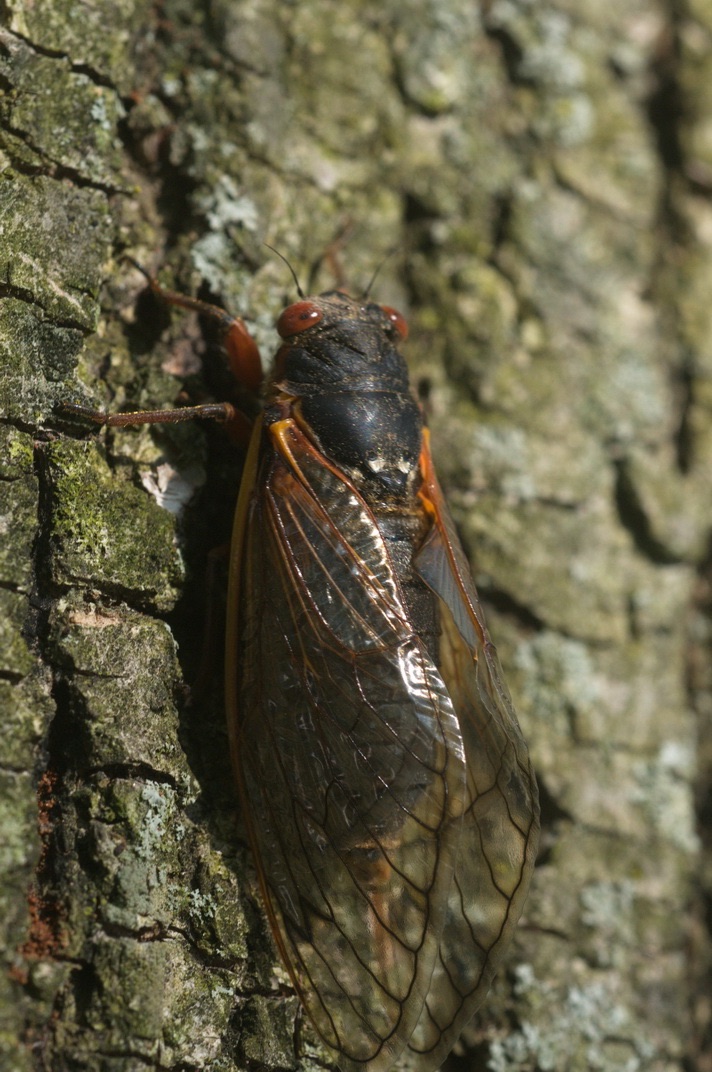
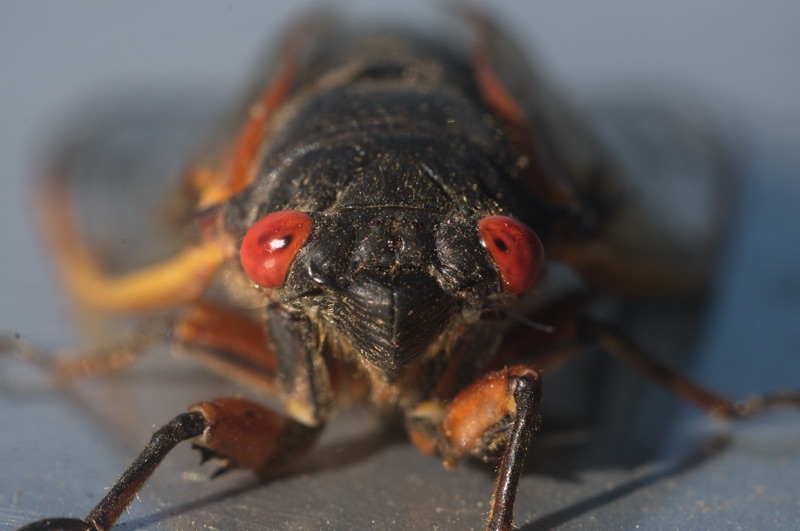
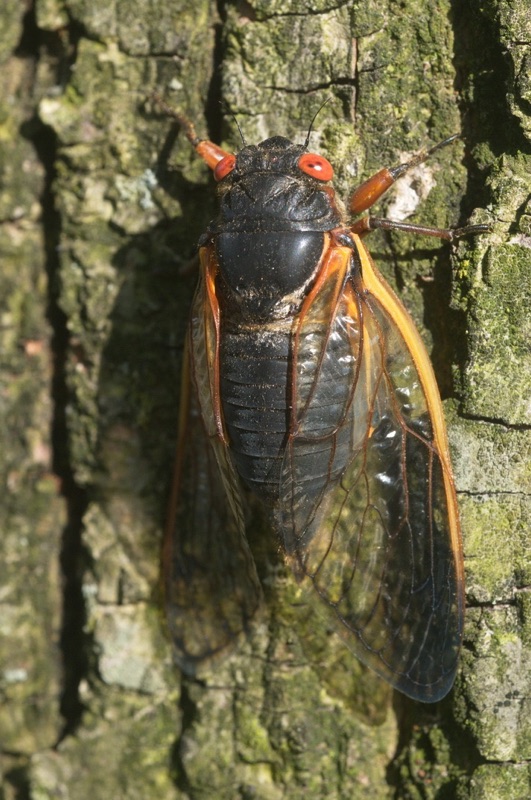
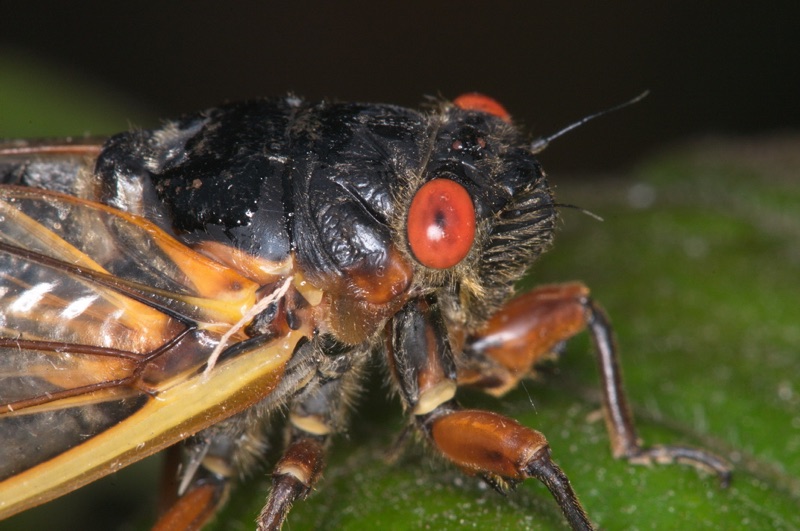
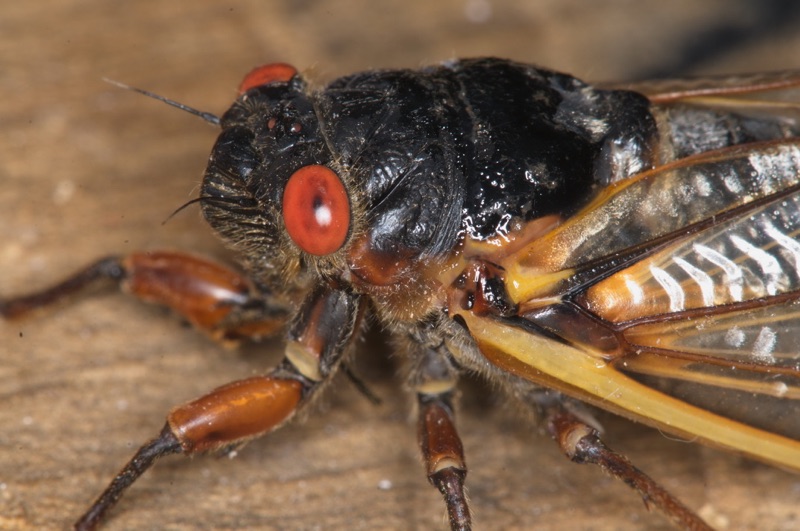
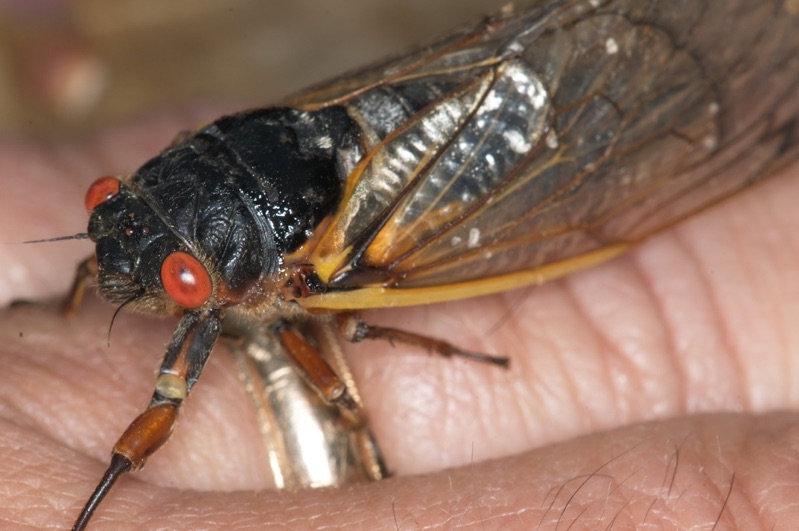
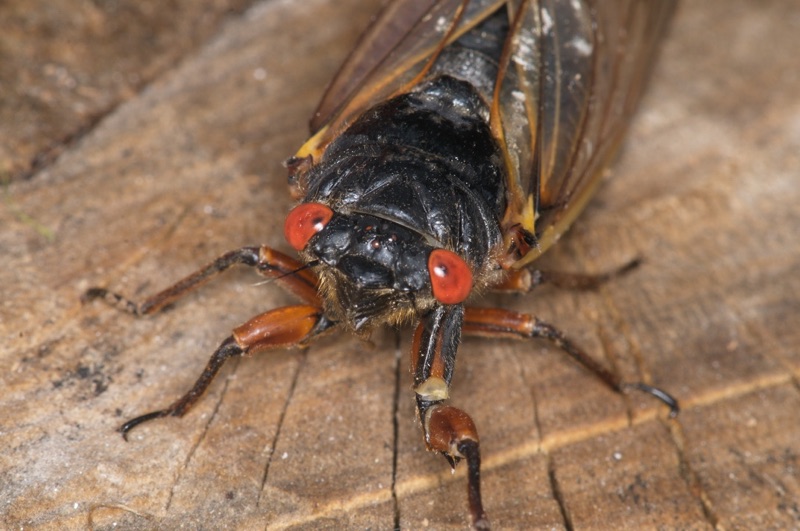
This photo is particularly interesting as the cicadas’s wings were damaged during the ecdysis (molting) process and its tymbal (the ribbed structure that makes the cicada’s sound) is clearly exposed:
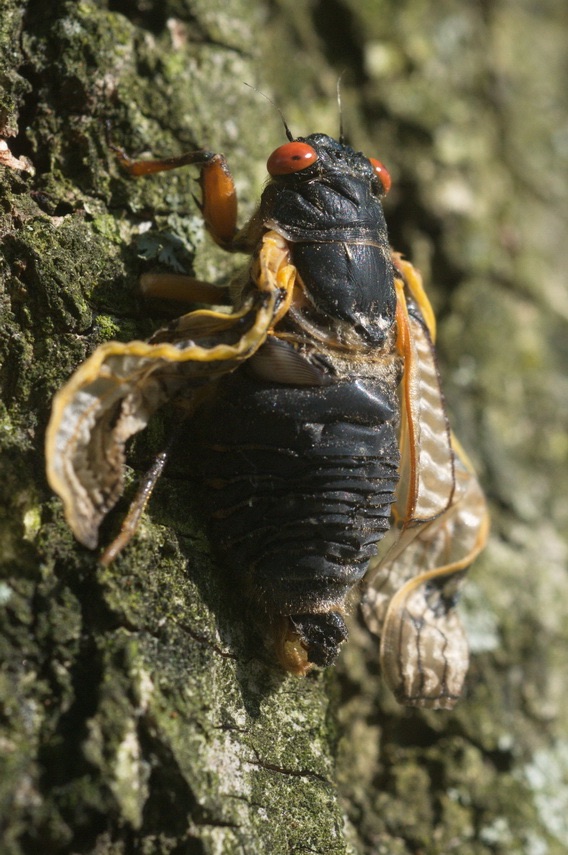
3 replies on “Photos of Brood II Magicicada cicadas from Westfield, NJ by Jim Occi”
Thanks so much for the information, Dan. I was visiting my folks in Westfield, NJ a few weeks back just as cicadas were beginning to emerge from their lawn and gravel driveway, and was surprised at how many had damaged wings. (My parents have lived there a long time and do not use any pesticides or fertilizers on their property.)I moved a lot of the cicadas onto nearby trees and was hoping they still had a chance to reproduce. The last time I saw this brood was way back in 1979, so I was very happy to catch the beginning of this year’s emergence!
I am curious as to whether cicadas with damaged wings are still able to reproduce ok. If the cicadas make it safely to a tree, do the damaged wings matter much? Are they needed at all for making their sounds? Thanks!
Yes and no. Females flick their wings to respond to a males call. If the wings are damaged and she cannot flick them, males are much less likely to mate with her. Males, on the other hand should be able to call and mate with damaged wings — they just have reduced mobility, and thus less of a chance to mate.